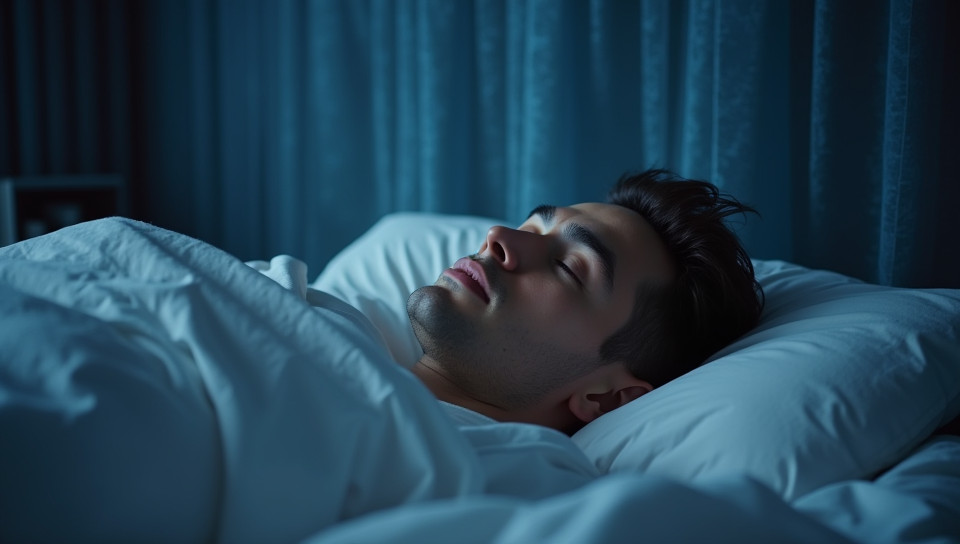Melatonin deficiency disrupts normal sleep patterns 32%

Melatonin Deficiency: The Silent Sleep Saboteur
Do you often find yourself lying awake at night, staring at the ceiling, and wondering why you can't fall asleep? You're not alone. Millions of people around the world struggle with sleep disorders, and a significant contributing factor is melatonin deficiency.
What is Melatonin?
Melatonin is a hormone produced by the pineal gland that regulates our sleep-wake cycles. It's often referred to as the "sleep hormone" because it helps us fall asleep and stay asleep throughout the night. When melatonin levels are in balance, we experience deep, restful sleep that leaves us feeling refreshed and rejuvenated.
What Causes Melatonin Deficiency?
Several factors can disrupt normal melatonin production, including:
- Age: As we age, our pineal gland's ability to produce melatonin decreases.
- Light exposure: Exposure to artificial light in the evening can suppress melatonin production.
- Circadian rhythm disorders: Irregular sleep schedules and jet lag can throw off our body's internal clock, leading to melatonin imbalances.
- Certain medications: Some medications, such as antidepressants and blood pressure medications, can interfere with melatonin production.
- Sleep disorders: Conditions like insomnia and restless leg syndrome can disrupt normal sleep patterns and lead to melatonin deficiency.
The Consequences of Melatonin Deficiency
Melatonin deficiency can have far-reaching consequences on our physical and mental health. Some common effects include:
- Fatigue and lethargy
- Difficulty concentrating and paying attention
- Mood swings and irritability
- Increased risk of chronic diseases, such as diabetes and cardiovascular disease
How to Address Melatonin Deficiency
Fortunately, there are several ways to address melatonin deficiency and promote healthy sleep patterns. These include:
- Establishing a consistent sleep schedule
- Creating a relaxing bedtime routine
- Avoiding screens before bed
- Getting regular exercise during the day
- Seeking professional help if you're struggling with persistent sleep disorders
Conclusion
Melatonin deficiency is a common problem that can have serious consequences on our overall health and well-being. By understanding the causes of melatonin imbalance and taking steps to address it, we can promote healthy sleep patterns and wake up feeling refreshed and rejuvenated. If you're struggling with sleep disorders or melatonin deficiency, don't hesitate to seek help from a healthcare professional. With the right guidance and support, you can overcome sleep challenges and start living your best life.
- Created by: Rían Doherty
- Created at: Oct. 13, 2024, 6:27 a.m.
- ID: 12280








